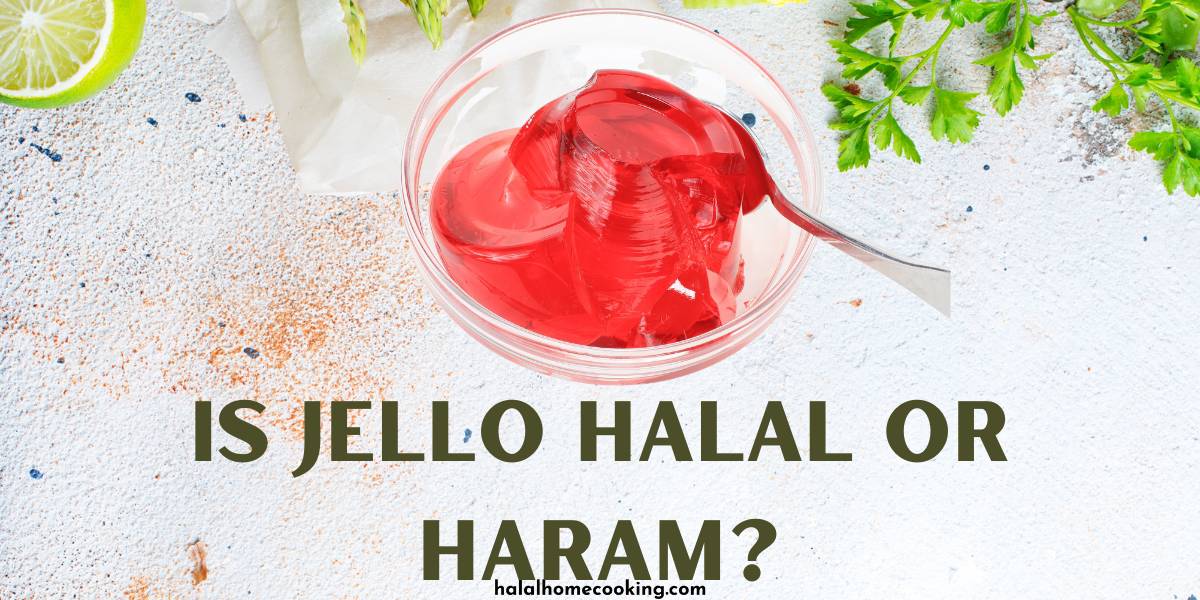Many of us have grown up enjoying this wiggly and colorful treat, but for those who follow Islamic dietary laws, finding out the halal status of certain food products is crucial.
In particular, gelatin has been a contentious ingredient when it comes to determining its halal status. Gelatin is commonly used in jello and other desserts like pudding as a thickening agent, giving them their unique texture. However, most commercially available gelatin is derived from either porcine (pork) or bovine (beef) sources, raising concerns among those who adhere to halal guidelines.
Firstly, let’s clarify what exactly gelatin is. Gelatin is a protein obtained by boiling animal bones, skin, tendons, or ligaments in water. It is extracted through a process that involves breaking down collagen into amino acids using heat and an acid solution. While this may sound alarming for individuals following Islamic dietary laws due to the prohibition of consuming pork-derived products (haram), it’s important to note that not all gelatins are made from porcine sources.
There are alternatives such as kosher gelatin and halal beef gelatin which are derived from cattle bones instead of pigs. These versions have gained popularity in recent years within the food industry as they cater specifically to individuals seeking certified halal options.
Moreover, advancements in technology have led to the development of fish-based gelatins made from fish collagen extracted from fish skins or scales. This provides another option for those looking for alternatives to traditional animal-based gelatins.
It is essential to consult reliable sources and experts to determine the halal status of jello products or any food that contains gelatin. In a recent post by Dr. Suad Salih on this matter, she highlights the importance of considering the source of gelatin and whether it has been certified halal by trustworthy organizations.
Is Jello Halal in Sunni?
Jello can be halal for Sunni Muslims as long as it does not contain any porcine gelatin and is made from halal gelatin, such as beef or fish gelatin. Gelatins derived from animal bones or skins, including cattle bones and fish, are considered acceptable sources in the Islamic dietary law.
The halal status of Jello depends on the source and certification of its gelatin. Sunni Muslims can consume Jello products that have been certified halal by reliable Islamic organizations or if they are made with alternative ingredients like agar-agar (derived from seaweed) instead of gelatin. It is important to read the ingredient list carefully and look for certifications to ensure that the Jello is indeed halal.
Is Jello Halal in Shia?
In Shia Islam, the halal status of jello depends on the source of gelatin used. Gelatin is typically derived from animal bones and skin, and if it comes from a halal animal such as a cow or fish, then it is considered halal. However, if the gelatin comes from a haram source like pork or non-halal animals, then it is not permissible for Shia consumption.
To ensure that jello products are halal in Shia Islam, one should look for certified halal gelatin alternatives made from beef or fish sources and avoid those that contain porcine or unknown animal-derived ingredients. It’s also important to note that different scholars may have varying opinions on this matter.
Is Jello Halal in Hanafi?
The halal status of Jello in the Hanafi school of thought depends on the source of gelatin used. Gelatin is derived from animal bones and skin, and if it is obtained from a halal animal such as beef or fish, then it would be considered halal. However, if it comes from a haram animal like pork, then it would be considered haram. The issue with determining whether Jello is halal lies in not knowing the exact source of gelatin used in its production.
Some companies produce “halal gelatin” made from bovine or fish sources specifically for Muslim consumers, which can be used to make halal Jello-like products or desserts. It’s important to check the packaging for a certification indicating that the product has been verified as halal by a reputable Islamic authority.

